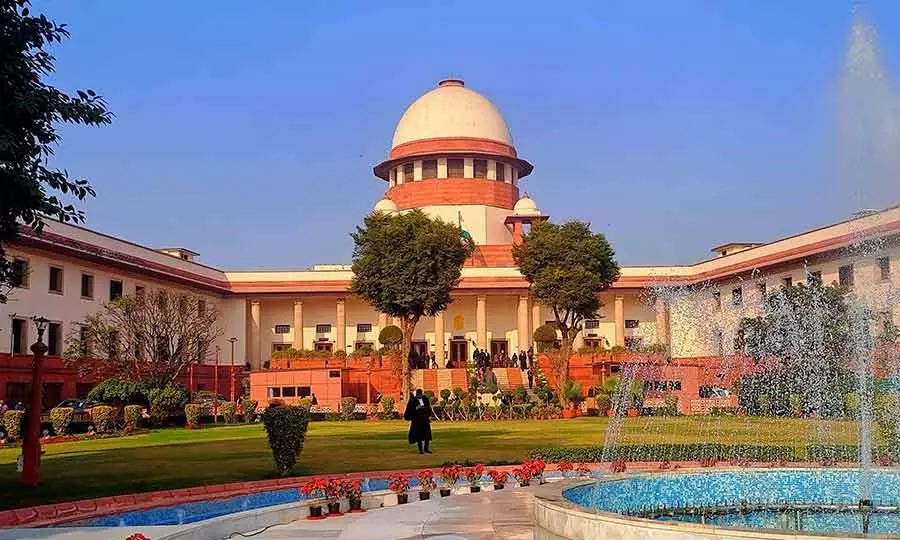Centre Told to Submit FIRs in Triple Talaq Cases

New Delhi: The Supreme Court on Wednesday directed the Centre to furnish data on FIRs and chargesheets filed against men for pronouncing instant triple talaq to divorce spouses in contravention of the Muslim Women (Protection of Rights in Marriage) Act 2019.
The direction came from a bench of Chief Justice Sanjiv Khanna and Justice Sanjay Kumar while hearing petitions challenging the constitutional validity of the 2019 Act. “We want the list of cases all over India where FIRs are filed. Now in all states, FIRs are centralised. Just give us a list of that… We will examine the data,” CJI Khanna told Solicitor General Tushar Mehta who appeared for the Centre.
The apex court was hearing a clutch of petitions filed by various Muslim individuals and outfits challenging the constitutional validity of the 2019 Act that criminalises the practice of instant triple talaq.
The bench said, “The respondent (Centre) shall file the total number of FIRs and chargesheets pending under Sections 3 and 4 of the Muslim Women (Protection of Rights of Marriage) Act 2019. The parties must also file written submissions not exceeding three pages in support of their contention.”
The top court asked the Centre and other parties to file written submissions to the pleas and posted the matter for final hearing in the week commencing March 17.
Solicitor General Tushar Mehta said, “In no civilised section, such a practice is there”. The bench said the petitioners were not arguing for making triple talaq valid but opposed its criminalisation.
CJI Khanna said, “I am sure none of the lawyers here are saying that the practice is correct, but what they are saying is whether it can be criminalised when the practice is banned and no divorce can take place by uttering talaq three times at once”.
The bench said as triple talaq was legally void, the law effectively penalised mere pronouncement of the words “talaq” thrice -- the bone of contention in the ongoing legal challenge.
Mehta defended the legislation saying penalising an activity fell within the domain of legislative policy.
He opposed the argument that the Act imposed disproportionate punishment, saying the maximum sentence under the law was three years, lower than penalties in other laws protecting women’s rights.
Quoting eminent Pakistani poetess Parveen Shakir to highlight the bane of instant triple talaq, the law officer said, “Talaq to de rahe ho itab-o-kehar ke saath, meri jawani bhi lauta do meri mehr ke saath” (You are pronouncing talaq in a fit of rage, please return my youth along with mehr).”
Mehta argued the law aligned with the broader principles of legal accountability, citing Section 506 of IPC, which penalised certain forms of verbal threats. Criminalisation of triple talaq served a necessary deterrent purpose, the SG said.
The CJI said, “If the divorce itself is not recognised, the relationship continues. But now, you have penalised the very act of pronouncing it.”
The petitioners, including Samastha Kerala Jamiathul Ulama, Jamiat Ulama-i-Hind, and the Muslim Advocates Association (Andhra Pradesh), contended that the law unfairly targeted a specific religious community.

